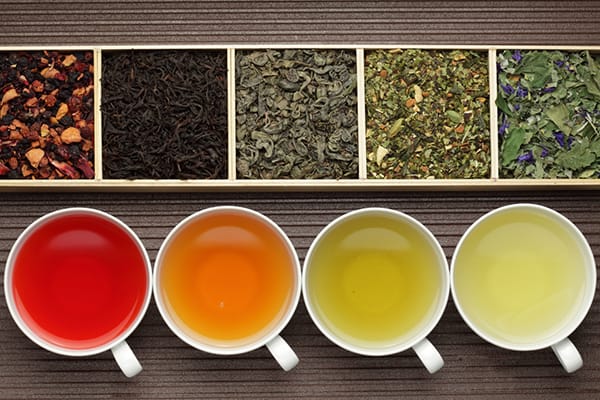The Chinese have used tea for its medicinal properties for thousands of years. According to studies conducted in this millennium, they knew what they were doing. Sipping on a cup of tea is a relaxing ritual for many. Research shows that it can also deliver a powerhouse of flavonoids, an antioxidant that's good for the heart, may stave off many types of cancer, and offers other health benefits.
Some teas are believed to fight diabetes, promote weight loss, lower cholesterol, and increase mental sharpness. Tea's antimicrobial qualities have been shown to fight bacteria, viruses, and fungi. Because any green, black, white, oolong, or Pu-erh tea is produced from leaves of the same plant, Camellia sinensis, they all offer health benefits.
So, if it's flavor you want, choose the one you prefer. But to gain specific health benefits, sip on this:
- Green tea made with steamed tea leaves for the biggest bang of antioxidants. Green tea has been shown to improve cholesterol levels; burn fat; reduce the risk of clogged arteries and stroke; prevent or slow cancers in the bladder, breast, lung, stomach, pancreas, and colon; and help prevent Alzheimer's, Parkinson's, and other neurological disorders.
- Black tea to reduce the risk of stroke and lung damage caused by smoking or secondhand smoke. Choose teas made with fermented tea leaves.
- White tea made from uncured and unfermented leaves for strong cancer-fighting properties, according to one study.
- Oolong tea to sharpen thinking, be more alert, and fight cancer, tooth decay, osteoporosis, and heart disease. Oolong tea is made from partially fermented leaves.
- Pu-erh tea to lower LDL cholesterol and help maintain weight. Pu-erh tea is a black tea made from fermented and aged leaves, which have been pressed into small cakes.
What about herbal teas?
Despite claims that herbal teas promote weight loss, fight colds, and encourage sleep, very little research has been done to verify those claims. In part, this is because herbal teas are difficult to study; their chemical composition can vary widely from one tea to the next. Herbal products are not regulated by the FDA.
Researchers do know, however, that some herbal teas contain potentially dangerous toxins. One study reported by the National Institutes of Health (NIH) states: “At least 26 herbal teas contain toxic ingredients, many of which have caused serious gastrointestinal, hematologic, cardiac, and nervous system disease.”
However, many herbal teas appear to be completely safe. And because they are made from herbs, fruits, leaves, roots, barks, or seeds, they contain health-boosting antioxidants, although at lower levels than teas produced from tea leaves.
The key is to choose herbal teas that do not contain aloe, bitter orange peel, comfrey, kava kava, and senna, and other herbs having laxative properties, according to the NIH.
